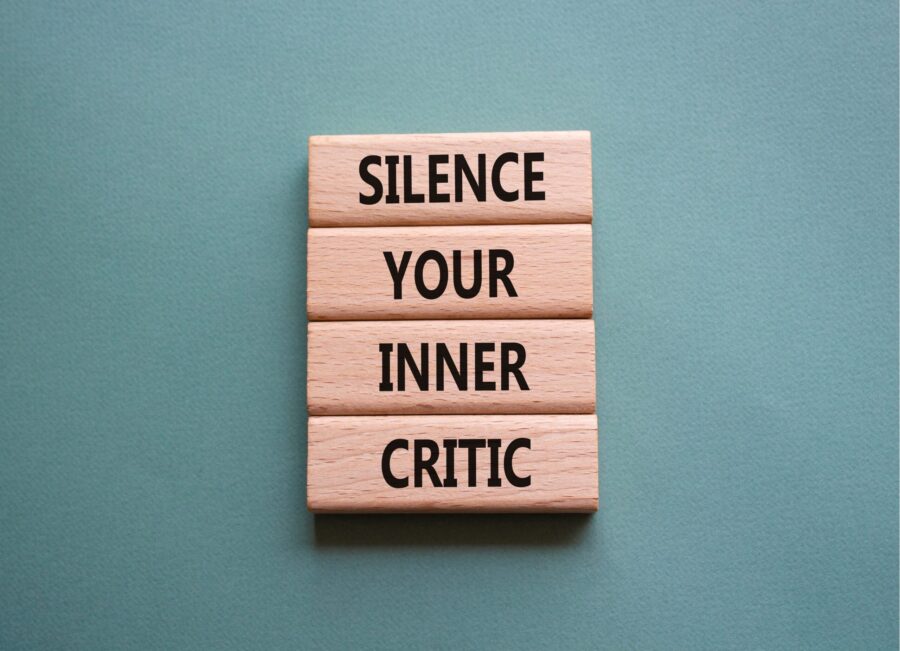Taming the Inner Critic
Taming the Inner Critic: Strategies for Working with Self-Doubt and Negative Self-Talk
Introduction:
We all have that voice in our heads. It whispers doubts. It criticizes our actions and undermines our confidence. This inner critic can be relentless. It chips away at our self-esteem and holds us back from reaching our full potential. This blog post will explore effective strategies for working with the inner critic. They will empower you to grow self-compassion and confidence despite self-doubt.
Understanding the Inner Critic:
Our inner critic is the voice inside us that judges and evaluates our actions and choices. It is shaped by our past experiences, by society’s expectations as well as our tough personal standards. This critical inner voice tends to highlight our perceived imperfections, errors, and failings. Its intention is to shield us from harm. But, a harsh inner critic can hinder us and harm our well-being.
Practice Self-Compassion:
One of the most powerful antidotes to the inner critic is self-compassion. This means treating yourself as you would a good friend facing similar challenges. With kindness and understanding. Acknowledge your flaws and mistakes with empathy and acceptance. Recognize that they are part of the human experience we all share.
When you are being critical and harsh with yourself, ask, “what can I do right now to be kind to myself”? Sometime it may be making a hot cup of tea, or going for a run on the greenway. It could also mean doing yoga, reading a good book or listening to music or a podcast. Other times it may mean putting your hands over your heart. This is to acknowlegde the suffering of the moment.
Challenge Negative Beliefs:
Learn to question the inner critic’s messages. Do this by challenging negative beliefs and assumptions. Ask yourself: Is this thought based on facts and evidence? Or is it a distortion of reality? What evidence exists to support a more balanced and compassionate perspective? By critically examining the inner critic’s claims you can start to loosen its grip on your self-esteem and confidence.
Cultivate Self-Awareness:
Developing self-awareness is essential. It helps us recognize when the inner critic is at play and understand its triggers. Pay attention to patterns of negative self-talk. Also, note the situations that tend to activate the inner critic. Notice how your body responds to self-critical thoughts. How it feels tension, discomfort, or shame. By noticing these patterns, you can stop the cycle of negative self-talk. Then, you can choose more empowering responses.
Practice Mindfulness:
Mindfulness offers a powerful tool for working with the inner critic. It does this by cultivating present-moment awareness and nonjudgmental acceptance. Practice mindfulness meditation. It lets you observe your thoughts and feelings without getting caught in them. Notice when the inner critic arises. Gently redirect your attention back to the present. Learn how to step bacl from the negative self-talk. You can create space for self-compassion and self-accetpance to emerge.
Seek Support:
Don’t hesitate to reach out for support. Working with the inner critic can become overwhelming. Talk to trusted friends, family members, or mental health professionals. They can offer perspective, encouragement, and guidance. Join support groups or therapy sessions focused on building self-esteem and resilience. Remember, you don’t have to face the inner critic alone. Seeking support is a brave step toward healing and growth.
Conclusion:
The inner critic may be a constant part of our lives. But, it doesn’t have to define our worth or limit our potential. You can tame the inner critic. You can do this with awareness, mindfulness, and by challenging negative beliefs. You can also lean on supports. Remember that you are worthy of kindness, acceptance, and love, just as you are.

